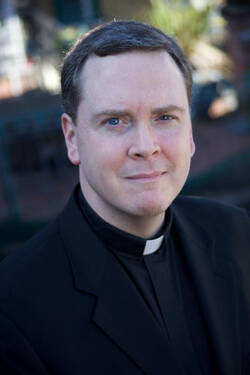As this issue goes to press, last-minute preparations are underway for the March for Life, the annual gathering of pro-life activists, clergy and civic leaders in Washington, D.C. From our founding in 1909, America has advocated for a consistent ethic of life in all our private choices and public decision-making. In this commitment, we are allied with the sentiments expressed in the statement by the Society of Jesus of the United States, “Standing for the Unborn,” which was published in America on May 26, 2003.
When we, the leadership of the Society of Jesus in the United States, survey the developments unfolding in our culture, we are deeply distressed at the massive injustices. A spirit of callous disregard for life shows itself in direct assaults on human life such as abortion and capital punishment, as well as in senseless violence, escalating militarism, racism, xenophobia and the skewed accumulation of wealth and life-sustaining resources. These realities compel us to speak out against what Pope John Paul II has called “the culture of death.”...
Some influential voices posit a zero-sum conflict between “women’s reproductive rights” and the right to life of unborn children. Jesuits ought to find their place among those who demonstrate the obvious confluence of women’s rights and respect for life in all its forms. Pope John Paul II summed this partnership up when he wrote: “Therefore, in firmly rejecting ‘pro-choice’ it is necessary to become courageously ‘pro-woman,’ promoting a choice that is truly in favor of women.”...
As Catholics and Jesuits, we would naturally prefer to live in a country where every citizen, voter and court consistently favor legal recognition of and protection for the unborn.... We must acknowledge, however, that phrases such as “the right to life, liberty, and the pursuit of happiness”...are phrases with contested meanings that others understand differently than we do.... The more attractive option seeks neither to flee nor to dominate situations of pluralism. It commits us rather to a process of engaging those who initially disagree with us on some issues, seeking to create an acceptable consensus wherever possible by building upon those truths on which we can reach agreement....
This path of “proposing, rather than imposing,” was described by the great American Jesuit theologian of the past century, John Courtney Murray. While emphasizing the value of tolerance and mutual dialogue, he also advised against any sort of moral relativism....
Another way of describing this stance is to say that Jesuits are committed to narrowing the gap between the current civil law of our nation and the demands of the moral law as we understand it. Our long-term goal remains full legal recognition of and protection for the unborn child—from the moment of conception....
In the near future, we cannot realistically expect complete agreement among all participants in the abortion debate. We must listen respectfully to others’ opinions, just as we expect a fair hearing of our own arguments against abortion. Our confidence in the persuasive power of well articulated defenses of pro-life positions sustains us, even as we acknowledge the long struggle ahead.... In the meantime, our common calling is to stand in solidarity with the unborn, the “least of our brothers and sisters” (Mt 25:40), through prayer and political activism.








